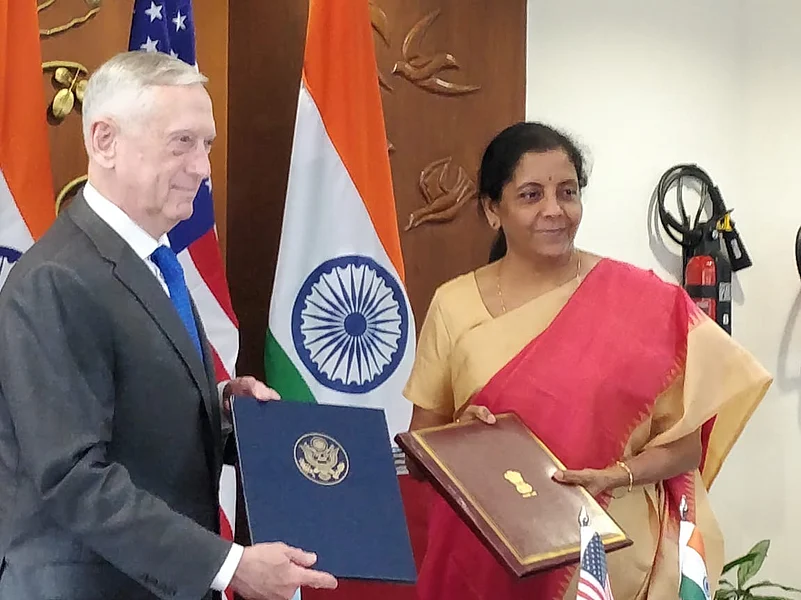The Communications Compatibility and Security Agreement (COMCASA) that would give India access to sophisticated and advanced technologies from the United States while buying high-end American defence equipment was signed on Thursday by the two countries. But only after Washington suitably amended the document to include legally binding guarantees Delhi had insisted to ensure uninterrupted access to such technologies and equipment at all time.
The COMCASA which comes into immediate force will allow “interoperability” between militaries of the two countries. This means they can now share operational intelligence or secret technologies and communications, in real-time. Cutting-edge military platforms like the Predator-B or weaponised Sea Guardian drones equipped with encrypted and sophisticated data that were so far denied to India, can now be sold to it.
Advertisement
But the document could not be signed at the first-ever 2+2 dialogue between foreign ministers and defense ministers of the two countries without amending it to suit the Indian concerns.
Though officially no decision had yet been announced, there are also indications that the US would not have much to say to scuttle India’s decision to purchase S-400 missiles from Russia.
India’s experience of dealing with the US has often, not been too encouraging. A major worry that India had was that an agreement giving it access to advanced technology and sophisticated equipment, could be stopped in future. While negotiating the document, Washington was ready to give political guarantee for the COMCASA. But India had insisted that only legally binding guarantees could satisfy it of its access to such technology and equipment not being prevented with a change in government in the US.
Advertisement
The COMCASA, earlier known as the CISMOA—Communication and Information Security Memorandum Agreement, had to be amended to include the Indian concerns. The COMCASA, along with Logistics Support Agreement (LSA) and the Basic Exchange and Cooperation Agreement (BECA) are known as the “foundational” agreements. The US insists that countries to which it sells sophisticated equipment with such advanced and encrypted technology would have to sign these three agreements.
The LSA was also watered down to Logistics Exchange Memorandum of Agreement, LEMOA, after India limited access to its port facilities by the US military only for refueling during joint exercises and rescue and relief operations. It does not give the US automatic access to Indian military bases or provides it logistical support, something that America’s critics in India, had feared.
India is yet to sign BECA.
While critics see signing of these agreements by India under the Modi government as an attempt for it to move closer to the American camp and giving up its independent foreign policy, the government and its policy makers see them as a necessary move for access to sophisticated and advanced technology from the US. At the same time something that would help India expand its strategic space, not curtail it.




















